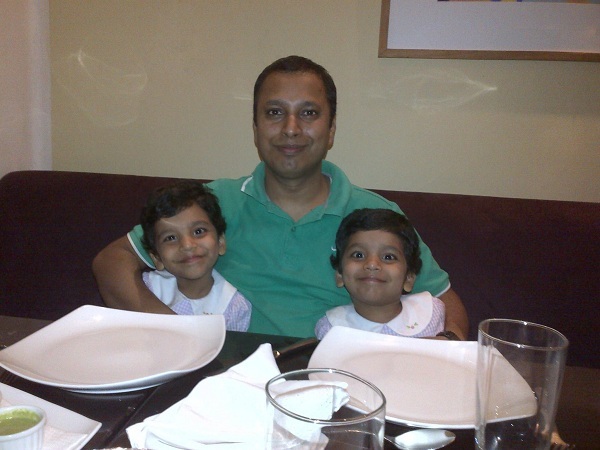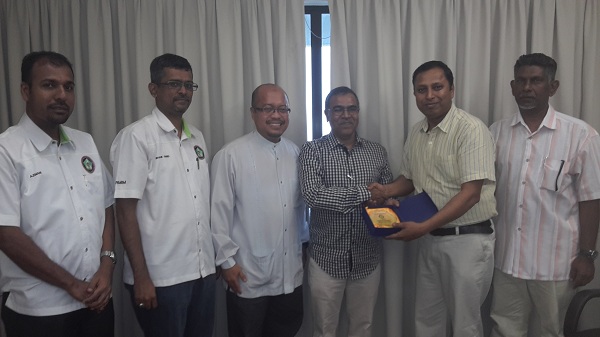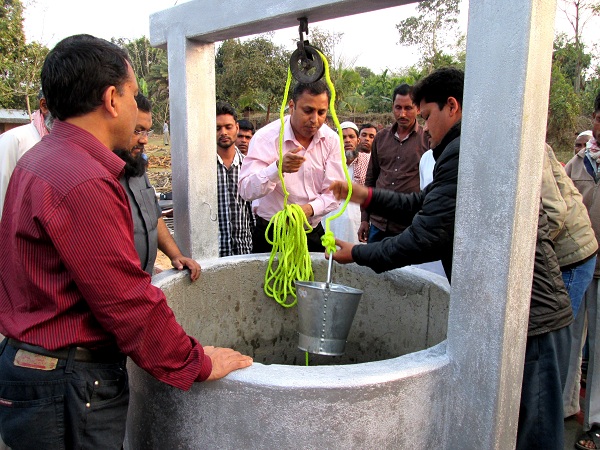
“Transparency and cooperation are the pillars of Islamic Relief”

Mohammad Akmal Shareef Felicitated by Federation of Malaysian Indian Muslim Associations in Kuala Lumpur, Malaysia, (PHOTO:MAEESHAT)
Islamic Relief India is full of energy and vitality with the aim to help the weaker section of the society.Over the years, it has traversed through an intricate maze of lanes. Having its headquarter in Birmingham, Islamic Relief India can claim with command, to quote the current Country Head Mohammad Akmal Shareef, “We follow the principle of transparency and accountability in what we do.” It is this thrust on standards that has been built over more than two decades and continues to be the guiding principle of the organization.
Maeeshat tracks the ups and downs of the organistaion. Excerpts from an interview with Shaheryar Hossain.
Can you please give a brief information about Islamic Relief India?
Islamic Relief India is a family member of Islamic Relief Worldwide, the world’s largest Islamic faith inspired charity. It has a presence in over 40 countries across the globe. Islamic Relief in India is registered under Company Act (Not for Profit) at Delhi. We are a professional humanitarian/development organisation which works with the most marginalised and poorest section of the society. We derive inspiration from Quran and prophetic values and strongly believe that it’s our duty to work for those who are suffering in this world. We work with every section of society and don’t differentiate between communities and people. Ours is a faith inspired action where we say ‘Serving humanity is our duty’.

Mohammad Akmal Shareef Inaugurating a Deep Well constructed by Islamic Relief in Hozai, Assam, (PHOTO:MAEESHAT)
What are the areas in which Islamic Relief work in India?
Islamic Relief started its operation in India in 1994. The services were more sporadic and were mainly concentrated in southern part of country. Recently, we have decided to expand our operation in India and have slowly started concentrating on north and eastern part of India where poverty and inequality is more rampant. In the last couple of years under my leadership Alhamdulillah we have grown very fast. We have been supporting more than 2000 orphans in this country, with over 250 orphans in Delhi only. Under the orphan support programme, we provide approximately Rs 2000 per month to each child to pursue education. The amount is directly deposited in their bank account under strict monitoring framework.
We have learnt that Islamic relief also works in disaster and emergencies. Tell us about that?
Many people may not be aware in India that Islamic Relief is globally known for working in emergencies and disasters. We command huge amount of respect among the lead international players, UN and other multilateral agencies due to our work in emergencies. Keeping that tradition and reputation intact and alive in India, we have successfully responded three big emergencies- Uttrakhand floods, Cyclone Phailin in Orissa and Jammu and Kashmir Flood. We are not one of those agencies who dump relief and come back. Our approach is to work on a long term –at least six months. For example, in Kashmir we have stayed till March 2015. Our emergency packages are holistic and adheres to the international standards. In Kashmir our emergency response work included services in the area of water and sanitation (WASH), food, NFI (Blanket, hygiene kit etc.), Medical support, Psycho-social support, child protection and education kit.
Can you please elaborate more on your work on Psycho-social support and Child Protection?
Within the working framework of traditional Muslim NGOs in India, you normally won’t notice these areas of work nor would you find any interest. It’s important to understand that whenever any disaster/emergency takes place it completely disturbs lives and on many occasions uproot communities from their places. Many people can’t cope up this sudden change and that impact their mental and social wellbeing. In such a scenario, these groups of people need specialized support to come back to normal life. After disaster possibilities of human trafficking also increases, therefore it becomes important to sensitize and train communities on how to protect their children from trafficking.
Other areas where we are investing our resources are health, education, WASH (Water, sanitation and hygiene) and civil society capacity building/social protection.
Being a Head of leading Islamic faith professional charity what is your opinion about Muslim based charities/NGOs in India?
In general there is a dearth of professional charities among Muslim’s in India. Within India, Southern and western part is still good where you find some good charities/NGOs, but in north and east there is acute shortage of professional charities/NGOs. I would also argue that the term ‘civil society’ never got sufficient headline in Muslim’s development discourse in this country. In fact, we never felt that this is an area which requires investment. We also need to understand that this is a professional and specialized work which requires fair amount of knowledge and skills. It’s a serious business therefore need to done in an organized and systematic way. In this highly globalized world you have to compete with other institutions and also at times you have to work with them. I feel this is an area where Muslim based charities are lacking. Within the landscape of Muslim charities /civil society there are some islands of Excellency, but there impact area has been limited.
How do Islamic Relief would like to fill this gap?
We are working on a comprehensive plan to work with local community based NGOs/civil society groups in the country. Since we work through local civil society groups/NGOs, we ensure that our partnership is beneficial for the community as well as for the NGOs. We normally ensure that NGOs develop their professional capacity. At regular intervals, we organize capacity building events for them. Being a mainstream professional humanitarian/development organization, we have a strong relationship with other international and national NGOs. Taking that advantage, we would like to create a broader forum where Muslim based civil society groups and other NGOs representing different interest groups come together and share ideas at regular intervals.
How do you generate and manage your resources?
Currently, we get support from our different affiliates from across the globe. I have always felt that being a Muslim we are well endowed with resources. We have to know how to channel those resources. Let me give you an example; Muslim in our country give zaka’at and Sdaqa in thousands of crore, but due to lack of organized system, we have failed to harness its benefit in a comprehensive way. Islamic Relief in India wants to build that system where our resources can be used in a strategic way. To use our resources in a more judicious way, we have to work at two levels, firstly we have to build such institutions that are transparent and accountable in all areas work. Secondly, we need to create greater awareness among charity givers about the importance of strategic giving. One of the primary reason why Islamic Relief became such a big organisation because it uphold the principle of transparency and accountability in its work. We developed robust systems for checks and balances and ensured that our resource reaches to the most marginalised community.
Finally, what would you say to Muslim based charities?
My message is very simple, we need to create institutions which are professionals and accountable. Maintaining highest standard of transparency in our dealing and transaction is very important. Our institutions need to be professional and open to learning. The time has come where we have to use technology to our advantage and build greater partnership and network with cross sections of groups. There are many development issues which our community is facing is common to other groups. We have to embrace other groups, their problems and work for them to show them true spirit of Islam.
